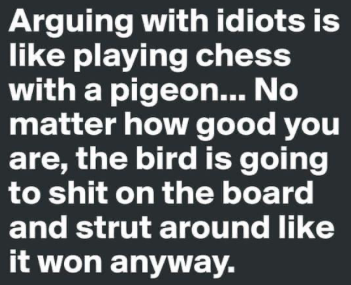Have you ever encountered someone who seems utterly confident in their abilities despite clear evidence to the contrary? Or perhaps you’ve caught yourself feeling overly confident about something you later realized you knew very little about? Welcome to the fascinating world of the Dunning-Kruger effect.
Some of you who have read my stuff before may remember another less scientifically supported syndrome that once you know it you can’t unknow it. This is the group of people who are know as “Six-Percenters.” It’s worth a read but, again I caution, that reading the below post and the Six-Percenter” post can not be unlearned and it will change the way you look at the world (go to Six-Percenter post – click here). There is a disclaimer that if you suffer from either of these two ‘syndromes or effects’ even after reading these posts you won’t necessarily realise it if you are someone who may be afflicted.
What is the Dunning-Kruger Effect?
The Dunning-Kruger effect, named after psychologists David Dunning and Justin Kruger, describes a cognitive bias where individuals with low ability in a particular area tend to overestimate their competence. In simpler terms, it’s when people who know the least about something mistakenly believe they know the most. This phenomenon can lead to unwarranted confidence and poor decision-making.
How Does It Work?
- Ignorance of Ignorance: At the heart of the Dunning-Kruger effect lies the inability of individuals to recognize their own incompetence. This lack of awareness prevents them from accurately assessing their skills or knowledge level.
- Overconfidence: Due to this ignorance of their own limitations, people affected by the Dunning-Kruger effect often display high levels of confidence in their abilities. They may assert their opinions strongly, even in the face of contradictory evidence.
- Incompetent Performance: Despite their confidence, individuals with low competence typically perform poorly when objectively assessed. Their lack of knowledge or skill becomes apparent when compared to those who are more knowledgeable in the same domain.
- Self-Reflection: Interestingly, those who are more competent in a given area may underestimate their abilities. This occurs because they assume others have similar knowledge or skills, leading to a modest self-assessment.
Examples in Everyday Life
- Social Media: You might have seen individuals confidently arguing about complex topics like economics or politics, despite having little to no formal education or understanding of the subject. I just love these keyboard warriors and spend many hours agreeing with them and providing further false information!
- At Work: Just note this is where Dunning-Kruger is a plaque. In professional settings, the Dunning-Kruger effect can manifest when employees overestimate their capabilities, leading to the dumb boss being in charge of experts and demanding the experts agree with them. This is also called Politics.
Mitigating the Effect
I had a really scientific and ‘workplace consultant’ answer for this but decided that it sounded too much like I was suffering badly from the Dunning-Kruger effect myself – which incidentally since I learned of this effect I catch myself a lot of the time falling for it.
What I do is, when I am being espoused obvious bullshit from a Dunning-Kruger ‘specialist’ is just nod my head and say ‘really,’ ‘how interesting’ and ‘I didn’t know that.’ It is also a fantastic time to practice active listening and actively observe those also listening to see who is buying the bullshit and who is not. I also encourage those other people to argue!!!
I also use this strategy with ‘bosses’ that are obviously a Dunning-Kruger suffer, which most are, as that’s how they got there! If they require you do do something really stupid, just say ‘Yes.” Mostly they don’t care if you do it, they just want to wield power over you because they believe they are smarter and will never check if you do it or not. So just don’t, they’ll never know. If the argument comes from the Dunning-Kruger subordinate, who thinks they should have your job, just asked them what they would do and then say ‘we’ll all share the responsibility’. They’ll do what you ask.
You Now Know About Six-Percenters and Dunning-Kruger, Sorry
The Dunning-Kruger effect serves as a reminder that humility and self-awareness are essential traits in navigating life’s challenges. It also important that you are not following fools into business or war!
So, next time you find yourself feeling overly confident about something, take a moment to to think about it. Are you truly as knowledgeable as you think, or could the Dunning-Kruger effect be at play? Are you the smartest person in the room, or the Six-Percenter?



